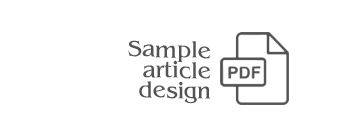PSYCHOLOGICAL ASPECTS OF DEVELOPING COMMUNICATIVE COMPETENCE IN STUDENTS THROUGH MEDIA LITERACY
DOI:
https://doi.org/10.55956/NPDH1726Keywords:
media literacy, competence, multimedia tools, representation systems, interactive methods, information, communication technologiesAbstract
The article is based on the formation of communication competence through the development of media literacy of students. The University directs the training of competent specialists with good knowledge of Information Technology, strong creative abilities, ability to analyze various information. In the process of using modern media materials in the educational process, it opens the way to the accumulation and verification of information and the ability to widely use modern innovative technological methods. In the field of developing students ' communication competence, media literacy based on the use of information and communication technology, they are taught to use the information obtained in case practice, professional activities, and solving any problems. At the same time, it provides students with the ability to correctly perceive various information, analyze it, and form an understanding of competence through communication. It is based on determining the conditions that ensure the analysis and formulation of scientific research, research and practice through the media literacy of students. Ideas have been developed for the implementation of methods for preparing electronic documents, which are implemented by multimedia tools – video and audio effects, various multiprogramming capabilities under the control of Interactive Software equipment.
In the course of the acquired knowledge and skills, it determines the ways of developing media literacy, forms the professional competence of students.
References
1. Медиасауаттылық. Жоғары оқу орындарына арналған медиа және ақпараттық сауаттылық бойынша оқу құралы. [Мәтін]: //IREX Europe ұйымы Қазақстан, Қырғызстан, Тәжікстан, Түркменстан және Өзбекстан елдерінде жүзеге асырылған жобалар аясында әзірленген// IREX Europe, 2018.
2. Мемлекеттік бағдарлама «Ақпараттық Қазақстан-2020» [Мәтін]: [Электрондық ресурс] // Қазақстан Республикасының Электрондық үкіметі. – Кіру режимі: https://egov.kz/cms/kk/articles/gp_inf_kaz_2020 Қолжетімділік күні:26.02.2016.
3. Игнaтовa, Н.Ю. Обрaзовaние в цифровую эпоху: монография. [Текст] / Н.Ю. Игнатова. -Мин-во образования и науки РФ. –Нижний Тaгил, 2017. – С. 25-36
4. Смагулов Е.Ж. Медиа білім берудің педагогикалық негіздері [Мәтін] / Е.Ж. Смагулов. - Молодой ученый. – 2016. – №5.2.
5. Қаңлыбаева, Д.Т. Оқушыларға коммуникативтік құзыреттілік білім берудің негіздері [Мәтін] / Д.Т. Қаңлыбаева // Білім әлемінде. – № 4(4). – 57–60-б.
6. Корастылева Л.А. Психология самореализации личности. [Текст] / Л.А. Корастылева. – М. 2015
7. Колмогорова, Л.А. Формирование коммуникативной компетентности личности [Текст] / Колмогорова // Барнаул – 2015
8. Шариков, А.В. Медиаобразование: Мировой и отечественный опыт. [Текст] / А.В. Шариков. – М.: Изд-во Академия, 2010. – 65с.
9. Медиаобразование сегодня: содержание и менеджмент / под ред. А.В.Федорова. [Текст]: – М.: Изд-во Гос. ун-та управления, 2002. – 755б.
10. Чёрный, Ю.Ю. Медийно-информационная грамотность в цифровом мире: как научить учителей [Текст] / Ю.Ю. Черный, Т.А.Мурована. – Москва: Институт ЮНЕСКО по информационным технологиям в образовании, Программа ЮНЕСКО «Информация для всех», 2021. – С. 32.
Downloads
Published online
Issue
Section
License

This work is licensed under a Creative Commons Attribution-NonCommercial 4.0 International License.

